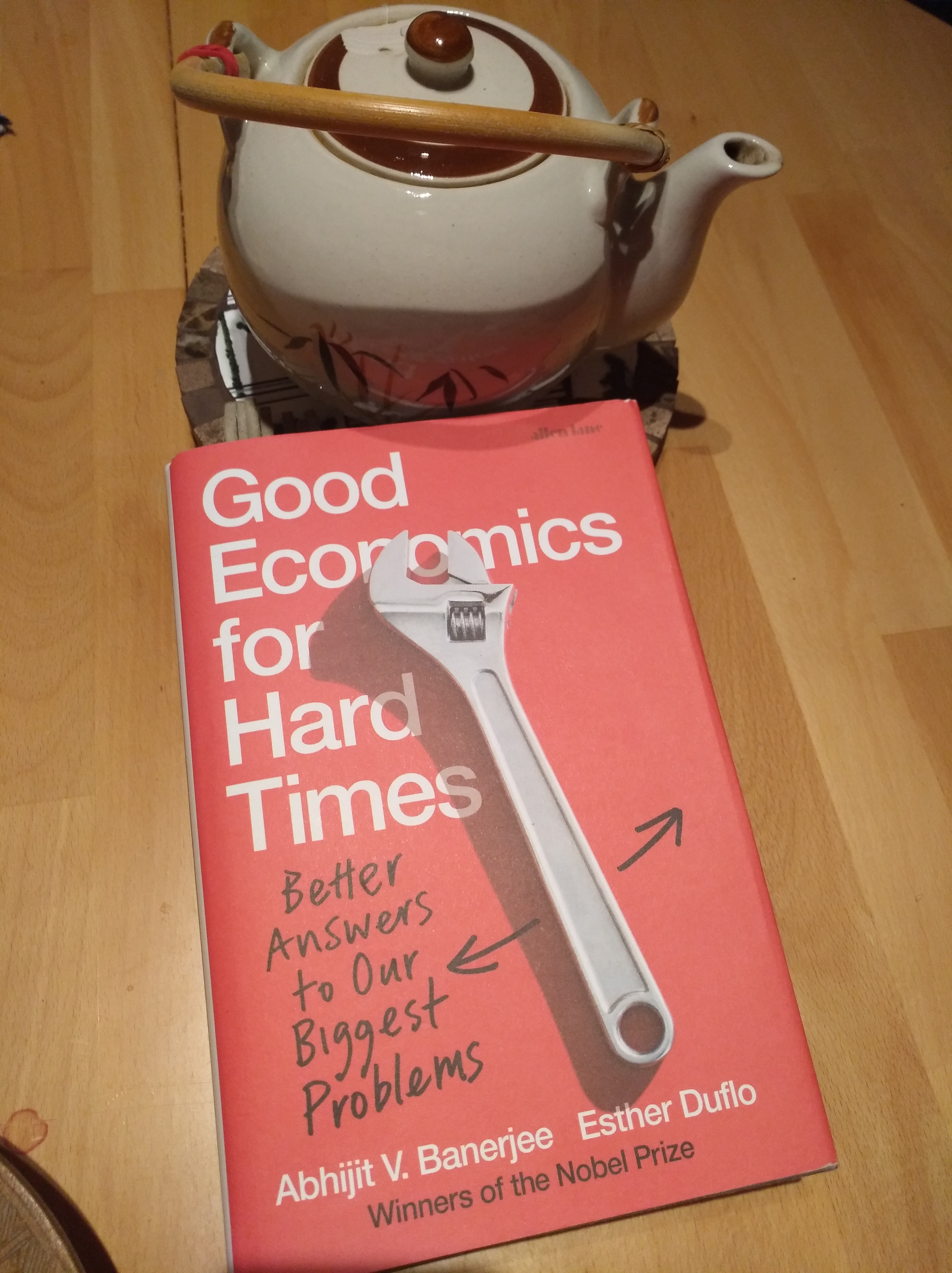Books - Read and Enjoyed
Good Ecomomics for Hard Times
by Abhijit V. Banerjee and Esther Duflo
Penguin Books, 2019
The book starts out with a dark joke: "A woman hears from her doctor that
she has only half a year to live. The doctor advices her to marry an
economist and move to South Dakota.
Woman: 'Will this cure my illness?'
Doctor: 'No, but the half year will seem pretty long.'"

But the book is anything but boring. In fact it reads effortlessly, is full of interesting facts and surprising insights. It disccusses a range of relevant and timely issues and is fundamentally inspired by the desire to help people. This desire seems to drive the authors to find out what really works and what does not. And they inform us that "there are no iron laws of economics keeping us from building a more humane world."
With a critical attitude towards their own profession the two economists and authors review for a range of relevant topics what we today know what works and where our knowledge is incomplete or speculative. In particular they repeatedly reject ideological answers, some of which have dominated the economic profession and politics for decades, and still do.
The topics of the book are migration, trade, what is a good live, GDP growth, climate change, the impact of technological innovations, inequality, government intervention and universal basic income. In all cases the authors look at the facts collected in studies and tell us, what we know today and what works. For instance, in the chapter on economic growth they conclude that economists today cannot really explain why some countries grow more and others less, why contries suddenly start growing faster or slow down. Apparently we don't really know what governemnts can do to facilitate higher growth.
To me this comes as a big surprise because over the years I have read so many great economists telling the world with unshakable conviction what should be done to make growth happen. And almost daily I hear some politician explaining, that this or that measure will strengthen the economy and increase growth. Now it turns out that, if Banerjee and Duflo are right, they are all on thin ice and have neither theory nor evidence to count on. One wonders where the strong conviction comes from.
But although the authors are sceptical towards policies not grounded in understanding and evicende, they are even more sceptical in leaving things to the market. In fact, a "recurring theme of the book is, that it is unreasonable to expect markets to always deliver outcomes that are just, acceptable or even efficient" (p 263)
Hence, throughout the book the authors warn us to be wary of ideological cliches and tell us never to trust explanations without strong evidence. But they also provide many and sometimes exciting examples of measures that actually do work. For instance are they full of praise of the Scandinavian approach to protect workers but not jobs and to help and support people in times of crises inflicted on them by global or local forces beyond their control. With great sympathy I read their plead for preserving the dignity of people when they live in poverty, have suffered and find few means to improve their lot. Inspiring hope and self-confidence seems often more important than material aid.
All in all it is a wonderful book that will be enjoyed by everyone who is interested in the big questions of our time and doesn't expect their previous convictions to be confirmed.
(AJ February 2020)
